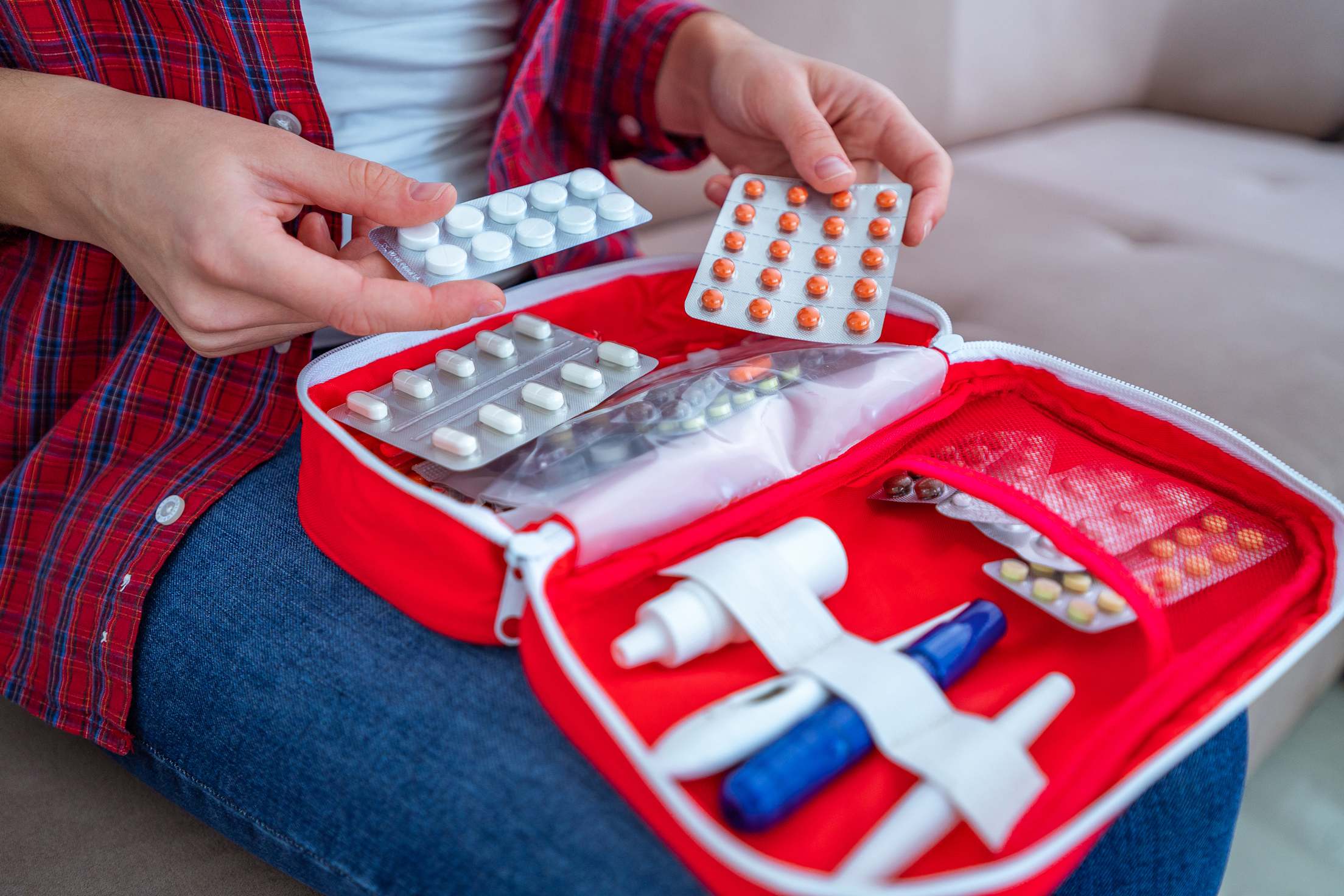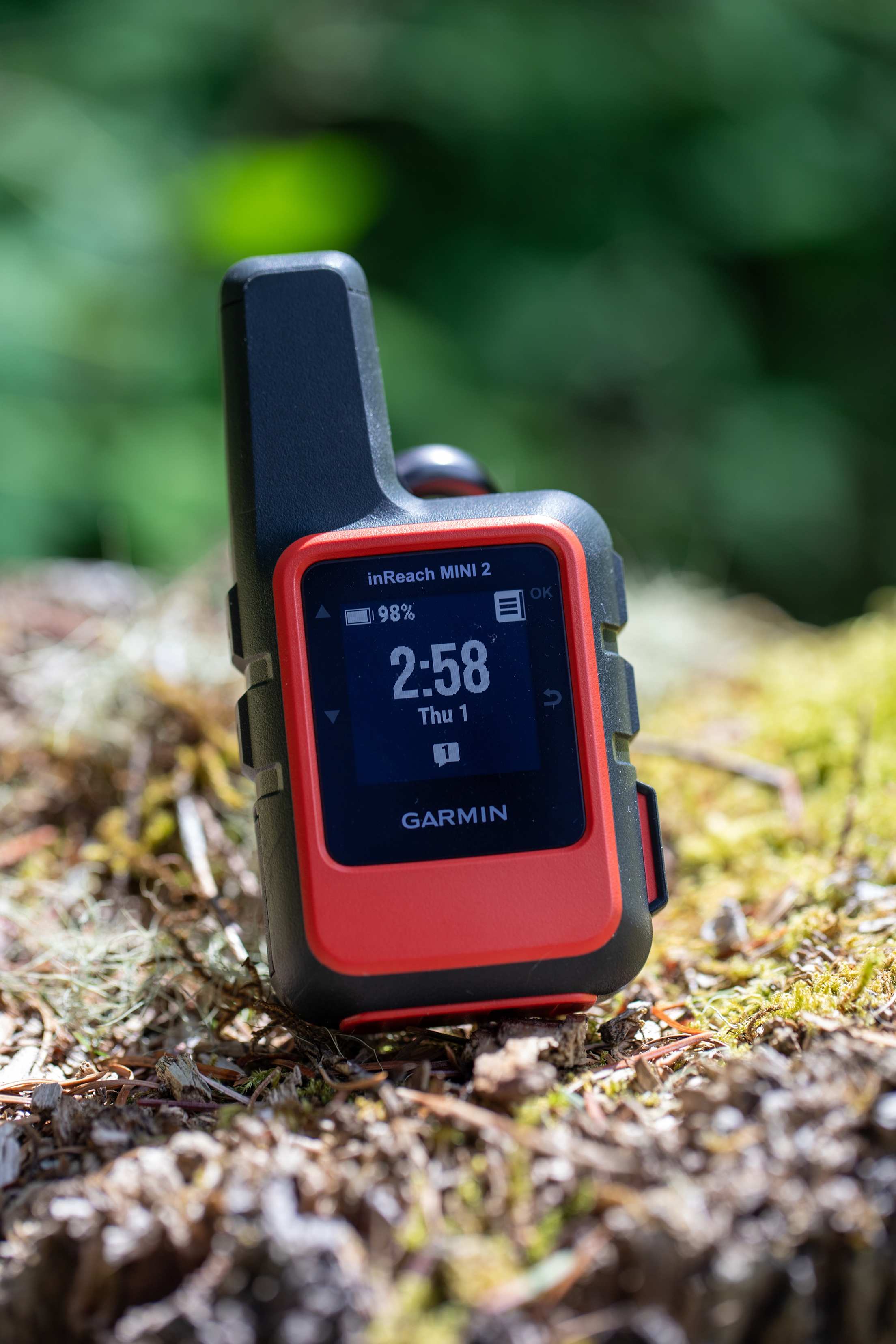
15 Items to Pack for a Safer Trip
Secure your room and more with these essentials.

It’s 7:30 pm, the sun’s rays are getting thin, your cell phone can’t get a signal, and the check engine light just came on. Or you just landed in a new country and the hotel room looks a lot dicier than it did on the website. Do these scenarios send your anxiety spiking? Of course they do, but the good news is that you can get through situations like this with less panic and more aplomb when outfitted with a complete set of tools. And while you can’t predict every possible disaster or avoid every difficulty, knowing you’re well prepared goes a long way to making you feel relaxed and confident away from home. Pack these 15 essential travel safety items to keep you safe on every trip.
1. Car Emergency Kit
While this should always be in your car, it’s even more important when you’re heading out for a road trip. Think of this box as your roadside disaster prevention armory, and equip it with jumper cables, a tire pressure gauge, flares or reflective orange roadside safety triangles, basic tools, duct tape, a tow rope, and an emergency blanket. If you’ll be far away from other drivers, consider adding a portable battery charger for self-reliance.
2. Luggage Tracker
Available to pair with both Apple and Android smartphones, these Bluetooth-based tags can allow you to find luggage that goes missing no matter the distance. You can also add them to your keys or other items that easily get misplaced away from home.
3. N95 Face Mask
While masks became ubiquitous during the Covid-19 pandemic, a true N95 Particulate Respirator will protect you when wildfire smoke, dust, or smog compromises air quality.
4. Door Stop, Plain or Alarmed
A good old fashioned rubber door stop is always a good idea to keep unwanted intruders at bay, and now you can choose one equipped with a motion-sensor alarm so you’ll be alerted if anyone tries to remove it.
5. Personal Safety Alarm
Available in a wide variety of sizes and styles, these range from self-activated personal alarms you carry with you to motion sensor alarms to set up in the room or attach to a door handle.
6. Cell Phone Charging Devices
A dead phone is a useless phone, so keep extra charging cables and battery packs in your car and luggage. These power banks have gotten even smaller over the years and easily slip into a pocket or day bag.

7. First Aid Kit
Not all medical kits are created equal, so choose one that goes beyond bandages and aspirin to include a thermometer, tweezers, cold compress, and other tools to treat a variety of injuries and illnesses. Or make your own, following instructions from the American Red Cross.
8. Gloves
Add disposable gloves to your medical kit for protection from infection and chemical agents and keep sturdy work gloves in your car for road emergencies like changing tires or putting on chains.
9. An RFID-Blocking ID Holder
Protect credit cards, IDs, and passports containing RFID (Radio Frequency Identification) chips from “skimming” and other unauthorized data theft with a wallet, passport holder, belt, or pack designed to block electromagnetic fields.
10. Physical Maps
GPS isn’t always reliable, and if your travels take you to areas with limited or no cell phone coverage, you’ll be glad for the aid of a physical map.
11. Portable Carbon Monoxide Detector
Now available as small as pocket-sized and both battery-powered and plug-in, these detectors will alert you to the presence of deadly carbon monoxide in your hotel room or vacation home.

12. A Satellite Messenger
If you’re planning a backcountry adventure, consider bringing along a personal locator beacon (PLB) or satellite messenger. These devices allow you to send an SOS to emergency responders, and some also allow you to send and receive non-emergency texts anywhere in the world. While these devices are coming down in price as well as size, many require ongoing subscription plans, so research and price accordingly.
13. Food and Water
Store several days’ worth of water and food in your car, replenishing regularly for freshness or choosing nonperishable food items such as freeze-dried meals. When traveling by air, stash a few energy bars, cereal packets, and other snacks in your hand luggage—you’ll thank yourself when a flight delay causes you to arrive after everything is closed.
14. Flashlight
You don’t want to rely on your phone’s battery-draining flashlight in emergencies; instead, keep a small flashlight in your travel pack and a more powerful one in your car, along with back-up batteries.
15. A Disaster Plan
Emergency preparedness experts such as FEMA advise having a disaster and emergency communication plan completed before departure. Create your plan by designating emergency contacts and answering key questions such as how and where you wish to be treated or evacuated in the case of sickness or injury, including health insurance coverage away from home. If you have travel insurance, read the fine print for coverage terms; if you don’t, consider purchasing a policy with provisions for non-medical emergency evacuation, such as in the case of weather and terrorism emergencies. Share the plan with those at home and keep a printed copy in your wallet or passport holder.
Let AAA Travel Agents plan your trip. It's a free benefit for AAA Members.